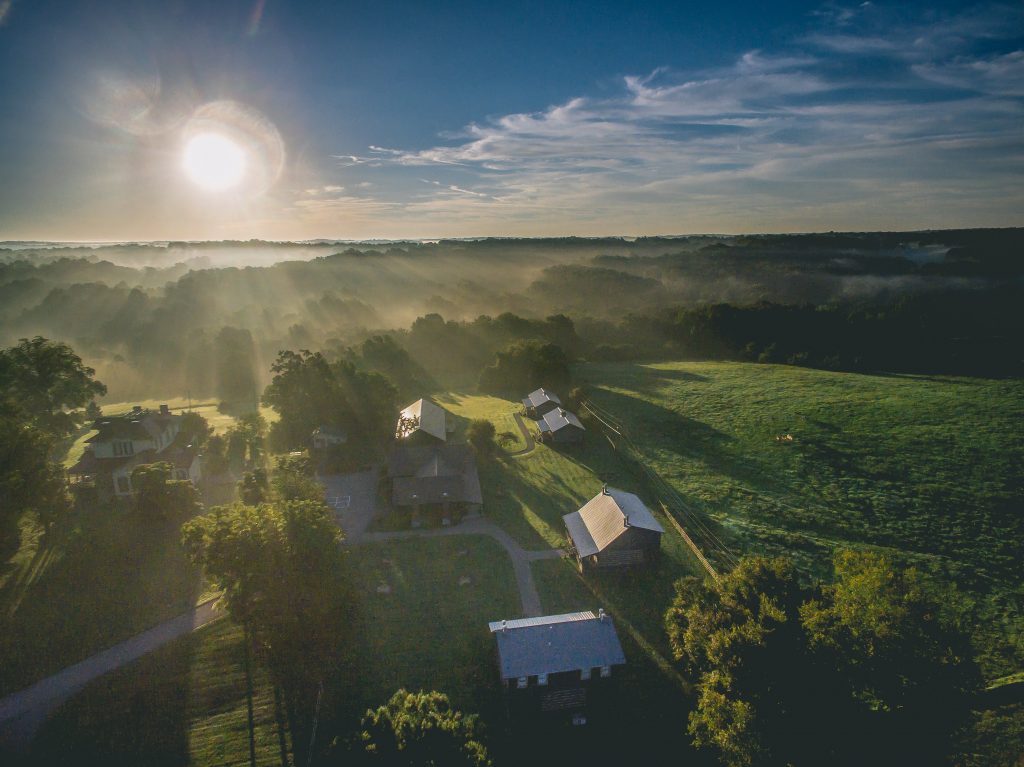Country Causes: Triumph Over Tragedy Provides Survivors of Mass Shootings With Tangible Tools of Hope
There are resources out there if you need help.

Crystal Miller can still recall distinct details of the mass shooting at Columbine High School. How she woke up with an instinct that there was something different about the day. When she asked her friends Seth and Sara to come with her to the library during lunch so she could study for a test, in lieu of their usual plans to go off campus. She remembers hearing the crackling sounds of gunfire and explosives nearing the library, she and her two friends taking cover under a table and immediately starting to pray. She remembers wondering what death would feel like as she heard the shooters’ footsteps coming closer. And when the perpetrators retreated to the hallway, she can still see the horrifying scene in her mind as she and her friends ran for their lives.
Miller spent the following days longing for solitude and to process her trauma in isolation. But she felt even more compelled to attend the memorial services and funerals of her peers, honoring their memories while grieving alongside her community. It is this sense of fellowship that’s at the heart of The Onsite Foundation’s new program, Triumph Over Tragedy, a week-long workshop designed to provide survivors of mass shootings with hope and tools for healing.
The inaugural event took place in March 2020, drawing 50 survivors from more than 20 mass shootings to the secluded Onsite campus an hour outside of Nashville, Tenn. The program is inspired by Austin Eubanks, another Columbine survivor. Eubanks passed away in 2019 after years of living with addiction to prescription opioids as a result of his trauma. Prior to his passing, he spent his life working as a national speaker on the topics of trauma and addiction, working to help other survivors lead fulfilling lives. Eubanks’ significant other, Laura Hutfless, co-founder of entertainment marketing agency FlyteVu and board member of the Onsite Foundation, was inspired to take action in the wake of his passing, as well as bearing witness to the longterm effects the mass shooting at Route 91 Harvest Festival had on her co-workers who were at the festival where 58 people were killed and hundreds more injured, sending a wave of devastation throughout the country music community.
In search of tools to help survivors and those closest to them, Hutfless couldn’t find an accredited resource. But like Miller, she saw a dire need and was motivated to help, approaching The Onsite Foundation with the idea of creating a program specifically for survivors of mass shootings. “I knew that there are people out there that are hurting,” Hutfless shares with Sounds Like Nashville from her FlyteVu office. “The numbers continue to rise and the ripple effect of that doesn’t just affect the wounded, but those who witnessed it, their families, their communities. So this type of trauma has a devastating effect on a large number of people.”

A team of expert clinicians and therapists curated the Triumph Over Tragedy program that not only helps survivors process their trauma, but gives them tools to cope in daily life. Additionally, Hutfless helped establish a council of survivors to offer guidance on the program. After connecting with Miller in the wake of Eubanks’ passing, Hutfless appointed her as chair of the Onsite Survivor Advisory Council, comprised of seven individuals who represent the mass shootings at Columbine, Route 91 Harvest Festival, Marjory Stoneman Douglas High School, Thurston High School, Aurora movie theatre, Charleston Emanuel AME Church and Antioch Waffle House. Since Columbine occurred in 1999, there have been more than 90 mass shootings in the U.S., with Statista reporting that the U.S. has more school shootings than any other nation. Giffords Law Center reports that on average, one mass shooting will occur per day in the U.S., while six of the 10 deadliest mass shootings have taken place in the past decade. Miller has been on the scene after many of these tragedies including Marjory Stoneman Douglas High School, Virginia Tech and Sandy Hook Elementary School. When she walks into these grief-stricken communities, she comes equipped with an important gift: hope.
“For so long, I’ve gone and I’ve shared a message of hope, and I believe that’s important,” she tells Sounds Like Nashville over the phone from her home in Littleton, CO. “But that only goes so far.” In the aftermath of Columbine, Miller says she was met with an abundance of resources, but she knows many people don’t have access to those same opportunities. That’s why Onsite was intentional about making Triumph Over Tragedy a scholarship-run program, with private donors covering the cost for all attendees. “There was never anything out there that was a tangible resource, tools that could be put into the hands of survivors so that they could not just survive, but thrive,” Miller explains. “I think what we know about trauma to be true is that we can understand trauma and its effects on our brains, on our bodies, and therefore we know that trauma can be healed. Triumph Over Tragedy is just another step in either beginning the process of healing or that continuation of healing that some have begun in their own process.”

“Trust the process”
“Trust the process” is a mantra that echoes through the halls of Onsite, serving as a message of encouragement to those in the program that they are on the path to healing. Part of that process exists within the property itself. Situated on 250 acres in the rural town of Cumberland Furnace, Tenn., the sprawling landscape boasts sweeping hills, peaceful streams, hiking trails and horses used for equine therapy, among many other natural amenities. A charming yellow farmhouse with a red tin roof immediately greets you as you come up the drive, acting as a meeting place for workshop patrons to engage in family-style dinners or soak in the sunset on the front porch. The campus is void of TVs, phones and other electronics, allowing guests to be fully immersed in the therapeutic process, while words like “grateful” and empowered” adorn the walls.
Throughout the program, each person works with a primary therapist and an adjunct therapist and receives an individualized treatment plan, in addition to group therapy. The group therapy rooms emit an inviting energy, as desks and chairs are replaced with cushions, pillows and blankets that transform the room into a safe space. Miller experienced the Triumph Over Tragedy pilot program with her fellow Survivor Advisory Council members and was inspired by the work that not only helped them process their individual trauma, but gave them valuable tools to walk through life with. “It was moving through the trauma so that we could move it from one part of the brain to where it needs to be stored so that we can live healthy both emotionally, mentally, as well as physically,” she says. But another key factor of the program is that she and her fellow survivors were given the freedom to share their stories without judgment. “There is something so unique that happens when survivors are together. There’s so many unspoken things that we all understand, and we don’t have to unpack those for one another,” Miller describes. “I believe that our stories can help heal one another, that we find strength and we find courage through one another’s stories. Courage to me, it’s not the absence of fear, because for all of us, we’ve experienced the most fearful thing that a human can experience in facing death. But courage is showing up and it’s doing the hard work and then it’s choosing to live and it’s choosing hope on the other side of that.”

Hutfless is determined to take this mindset beyond the workshop, hoping that survivors take the lessons they learned through Triumph Over Tragedy into their communities, ultimately creating a ripple effect across the world. “My hope is that this would start the healing of individuals, of emotional wounds that are still bleeding that last longer than physical wounds, but yet you can’t see. Hurt people hurt people, and we have to stop the cycle somehow. There are hurt people, innocent people, who are walking with wounds and we have the ability to heal them. It’s much harder to see, but if we all are aware and we can be educated and informed and we have the tools and the ability to offer somebody hope and healing, I think it’s our responsibility to do that,” she professes. “We’ve seen the ripple effect of hate, and now we can see the ripple effect of hope.”
Choosing hope is an action that Miller has taken each moment since that harrowing day in 1999. Through her experience with Triumph Over Tragedy, Miller’s passion to tell her story continues to grow, vowing to share the gift of hope with the world around her. “Never before in history has this been more important because the amount of people affected, and so my job really has become now to be a voice of hope in the midst of their suffering, in the midst of their pain, to stand up there as a physical representation to say ‘I am living proof that this is not the end. That this trauma, this tragedy doesn’t have the final say – that hope does,’” Miller proclaims. “‘And where there is hope, there is life.’”


